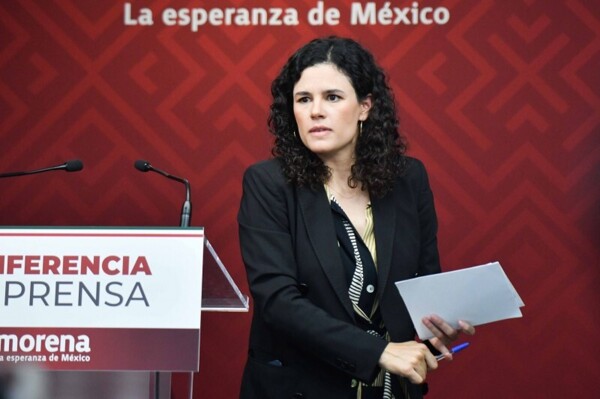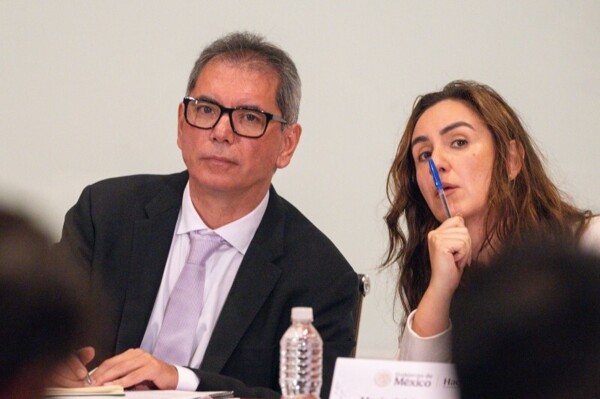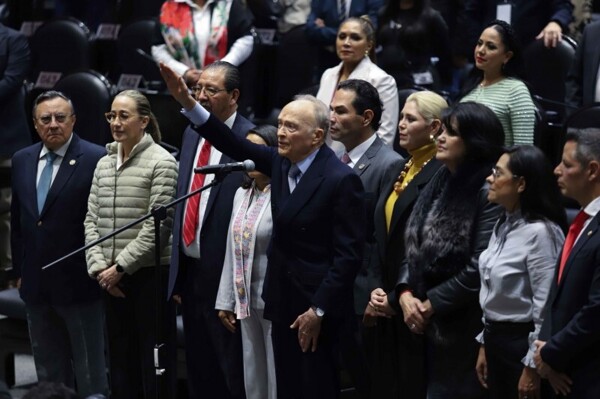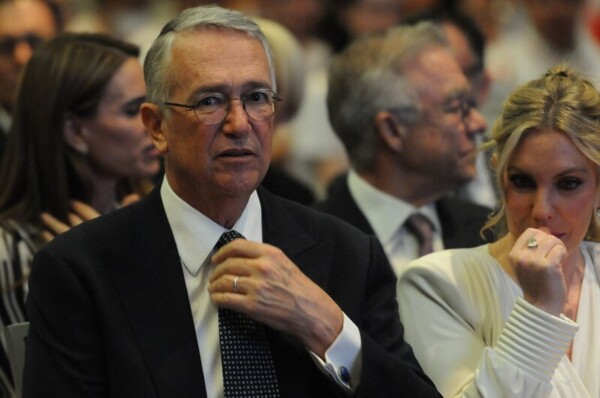
Currently, this process can be requested within the three months following the third year of the constitutional period; with the modification, it can be requested within the six months prior to the conclusion of the third year. Additionally, it is proposed that the vote for the recall be held on the same day and during the mid-term electoral day, in which federal deputies are elected, unlike the current scheme, which establishes a separate process on a different date. The project establishes that the reform would come into force the day after its publication in the Official Gazette of the Federation.
Electoral issues analyst Jorge Alcocer, founder of the magazine Voz y Voto, warned that advancing the consultation "has no other purpose than to get President Sheinbaum on the ballot and allow Morena and former President Andrés Manuel López Obrador to carry out proselytism from next year." During an interview with Aristegui en Vivo, Alcocer considered it to be "starting the campaign for 2027 from now," by linking the recall with a "complex" electoral process that will include federal elections, 17 governorships, 31 local legislatures, and more than 1,700 municipalities, in addition to the election of magistrates of the Federal Judicial Power.
The specialist described the proposal as a "stratagem" that would take advantage of a "curious coincidence": the constitutional requirement that the request for recall be supported by 3% of the electoral roll distributed in at least 17 states, the same ones where the governorships will be renewed that year. Likewise, he dismissed the argument that the measure seeks to save resources by combining the consultation with the ordinary election.
Among the main proposed changes, it is established that popular consultations would no longer be held on the first Sunday of August, as is currently the case, but on the first Sunday of June, in order to coincide with ordinary electoral processes. Regarding the recall of the mandate of the Head of State, the reform proposes adjustments both in the deadlines and in the way it is carried out. In addition, the norms that contradict what was approved would be eliminated and the Congress would have 180 days to make the necessary changes in the law.
Putting Sheinbaum on the ballot: Alcocer
The decision to postpone the analysis occurs amid the debate over the political implications of the reform. The leader of the Morena bench in the Chamber of Deputies, Ricardo Monreal, stated that the constitutional reform project on the recall of mandate, which would make it possible to hold it in the 2027 mid-term elections, could be approved by the end of the year or in February 2026, within the second ordinary session period. He indicated that the Commission on Constitutional Points, chaired by Morena's Leonel Godoy Rangel, will review the establishment of a mechanism that allows for greater discussion and deliberation on the recall of mandate.
"It can come out at the end of the year, the initiative presented by deputy Alfonso Ramírez Cuéllar, it can be expected until the second ordinary period, which begins on February 1, but we are not going to rush. As I said yesterday, we are going to wait for there to be a broader discussion and for society to know what the recall of mandate is about," he said. He ruled out that President Claudia Sheinbaum will present an initiative on the matter, and said that Ramírez Cuellar's will be "dictated with great prudence and care," and with a "broad discussion on the subject."
For his part, the vice-coordinator of the Morena bench and author of the initiative, Alfonso Ramírez Cuellar, said that he will wait for the plan that Godoy Rangel presents for the discussion of the reform, although he clarified that "the reform is going ahead." "We want to find the points of coincidence with the rest of the parliamentary groups. I would very much like it to be in this period," he said.
On Monday, the Chamber of Deputies' Commission on Constitutional Points postponed until further notice the meeting in which the constitutional reform project would be discussed, at Monreal's request, in order to seek agreements among the different parliamentary groups. "We do not want it to be thought that there is a sneak attack, that we want to do it alone, but that we all make an effort to enrich the proposal," he said, while raising the possibility that the Commission will call for analysis tables.
What does the constitutional reform project consist of?
The bill modifies the requirements to request a recall consultation and the dates for its holding, so that, if it becomes a reality, it would coincide with the 2027 mid-term elections.
"If they don't want to spend that money, then let them not promote that there be a recall of mandate," he affirmed, while emphasizing that the exercise "is not mandatory" and is only convened if the citizen requirements are met. Alcocer recalled that in 2019 it was then head of the Interior Ministry, Olga Sánchez Cordero, who warned President López Obrador that holding the consultation on the same day as an election would violate article 134 of the constitution, which prohibits public officials from influencing the electoral competition. The analyst described the initiative as "an outrage" and "another brick in that building of authoritarianism" that, in his opinion, seeks "to secure its majority at any cost."














